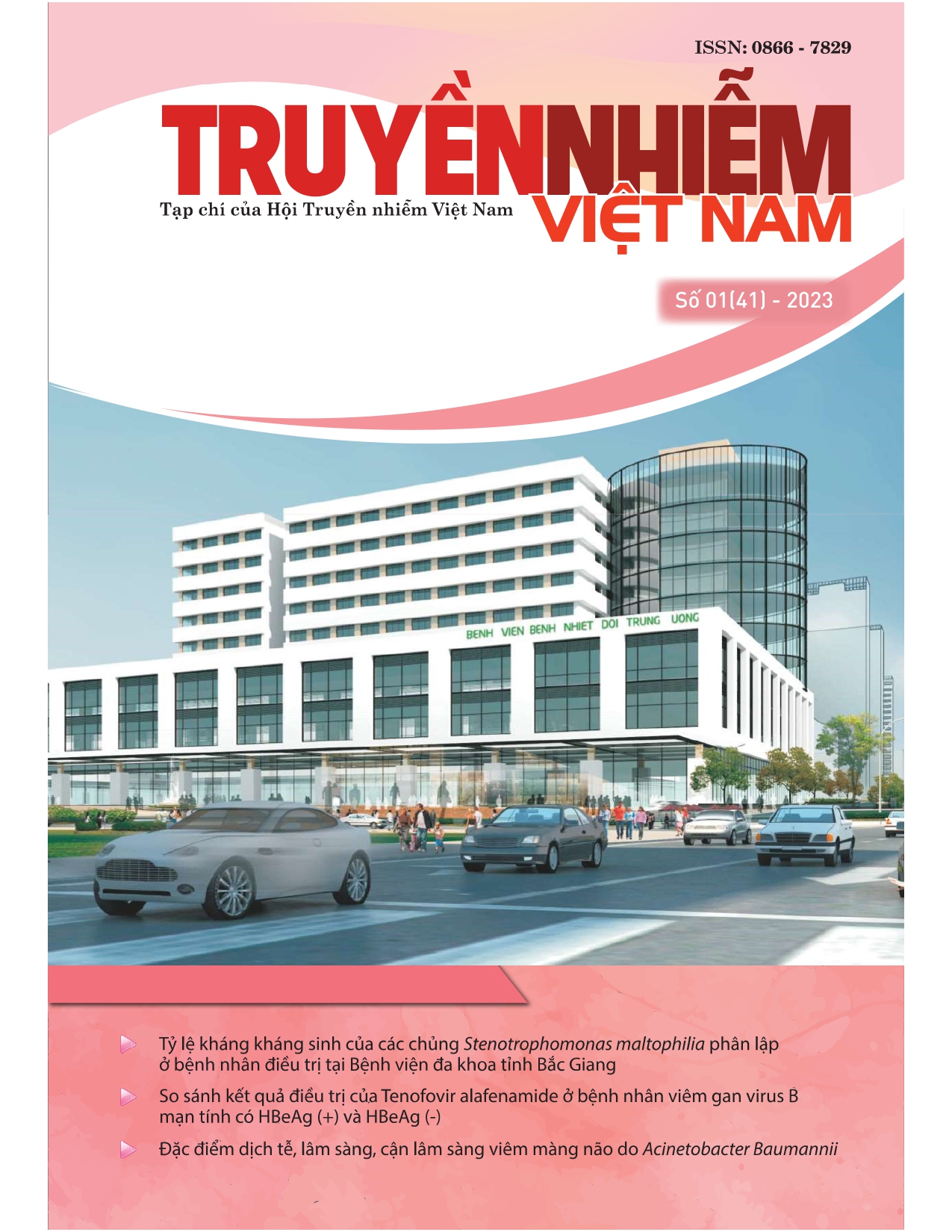COMPARISON OF CLINICAL, PARACLINICAL FEATURES BETWEEN PATIENTS WITH INVASIVE FUNGAL PNEUMONIA CAUSED BY CANDIDA AND ASPERGILLUS AT THE NATIONAL HOSPITAL FOR TROPICAL DISEASES
Main Article Content
Abstract
Objective: To compare the clinical and paraclinical characteristics between patients with invasive pulmonary fungal infection caused by Candida and Aspergillus.
Subjects and method: Cross-sectional descriptive study on 105 patients with invasive pulmonary fungal infection treated at the National Hospital for Tropical Diseases.
Results: The most common risk factor in the group of patients with Candida pneumonia was antibiotic use (80.3%), in the group of Aspergillus pneumonia was the use of corticosteroids (24.2%).
There was no statistically significant difference (p > 0.05) in the respiratory symptoms as well as hematological tests, inflammatory bilan between the two groups by Candida and Aspergillus. The rate of cavity lesions on chest X-ray was higher in Aspergillus pneumonia group (15.2%) than in Candida pneumonia group (9.1%) with p<0.05. In the group of patients with Candida pneumonia, the rate of patients with extrapulmonarymanifestations of fungal septicemia was 3%, urinary fungal infection was 14%. There were no manifestations of organ damage other than the lungs caused by Aspergillus in the group of patients with Aspergillus pneumonia.
Conclusion: Clinically it is necessary to combine risk factors and extrapulmonary lesions in the differential diagnosis of Candida and Aspergillus pulmonary fungal infections.
Article Details
Keywords
Invasive pulmonary fungal infection, clinical, paraclinical, Candida, Aspergillus


